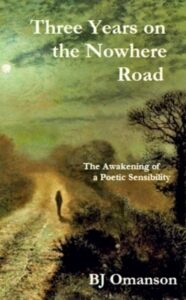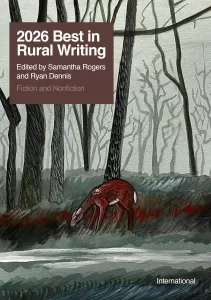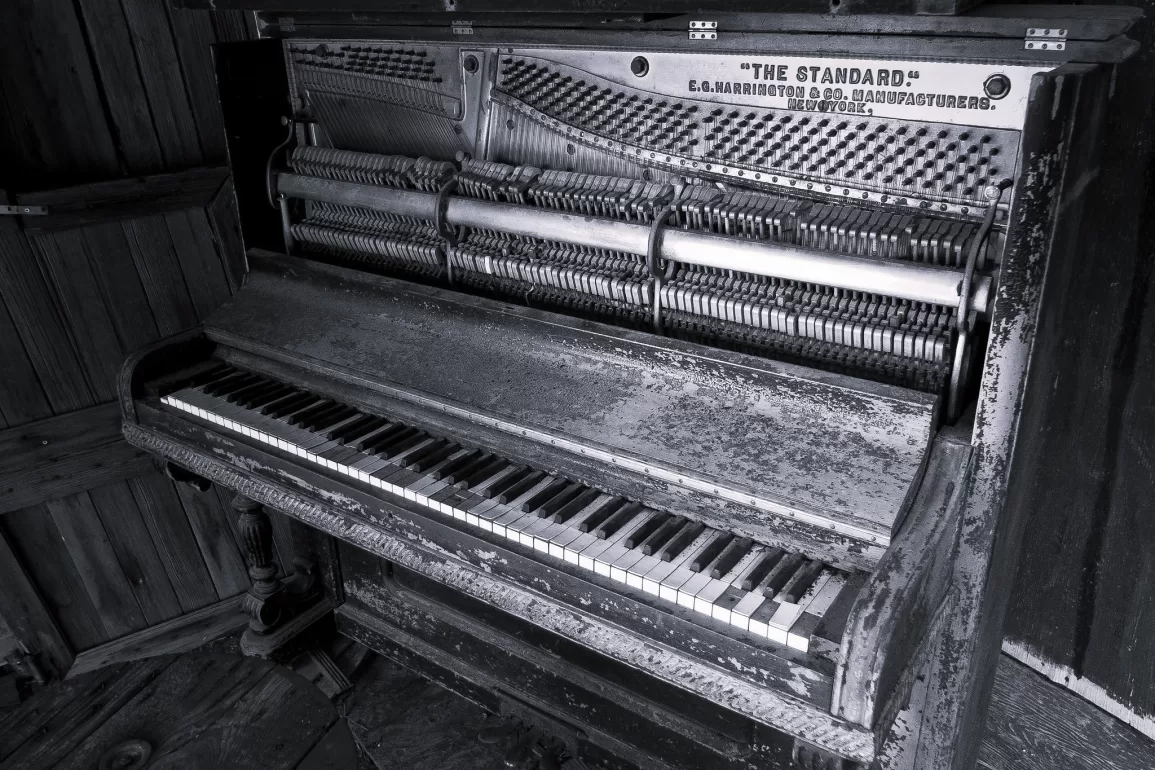The Old Hotel at the End of Night
I haven’t the least idea where it was,
possibly somewhere in southern Missouri
or it may have been out in Oklahoma
or further on down the line in east Texas,
that my Buick finally gave up the ghost—
I couldn’t be sure, I’d been driving so long,
driving for half of my life, or so
it seemed at the time, through a pitch-black night
with no sunrise in sight and nary another
soul on the road. And so I abandoned
my car in a ditch and just wandered off
aimlessly down the highway alone,
with my satchel over my shoulder, walking
westward into the darkness, into
a merciless wind that savaged my ears
and cut its way under my skin, into
a country from which there would be no return,
but still I kept trudging and trudging along,
shouldering against the cold and the wind
until I could no longer feel my feet
or my legs— until I came to the edge
of a town that was scarcely a town at all,
just a crossroads really, with half a dozen
dilapidated old buildings that looked
as if they hadn’t been occupied since
the 1850s, or thereabouts,
a desolate, windblown ghost of a town
with a livery and a dry goods store
and some outlying sheds and, at the far end,
a red-brick building with high arched windows
and a sign that declared the St. James Hotel.
Despite the late hour the door stood ajar
and I noticed a flickering halo inside
from a dozen old gaslamps along the wall,
so with nothing to lose I ventured inside.
A kerosene lamp with an ornate globe
glowed softly upon a bare wooden table
and I wondered what century I was in.
There was one old gentlemen down at the end
of the bar in a shabby homespun coat
with a half-empty glass at his elbow, who said.
“You’ll just have to help yourself there, Pilgrim.
The bartender wandered off into the night
a few years ago and never returned.”
I nodded and stepped back behind the bar
where an array of old bottles lined the wall.
I by-passed the bourbon and brandy until
I came to some scotch and a dusty glass
that I slowly wiped out with the tail of my shirt
and held to a lamp. It looked clean enough.
I stepped back around to the front of the bar
and took a seat on one of the stools,
unhurriedly poured myself a drink,
then turned half around to face the room.
I noticed another old gentleman then,
of uncertain age, in a raggedy vest
and porkpie hat with a thin mustache,
who resembled nothing so much as a seedy
riverboat gambler who’d lost his boat.
He was leaning against an upright piano
that, much like himself, had seen better days.
When I caught his eye, he just tipped his hat
and seated himself upon the bench,
rolled up his sleeves and began to play—
very softly at first, as though from across
a mysterious distance, disquieting chords
in an unfamiliar minor key
that constricted the throat, and he began
to sing—if singing is what it was—
in a drybone voice, in a voice as pained
as a creaking gate and as desolate as
the skeletal rattle of windblown sand
on a cold windowpane— a ballad as bleak
as purgatory, relating a tale
that went on for half an hour or more,
then closed at last with these harrowing lines:
of power and greed and corruptible seed,
of leaders who harshly rule by havoc,
of days grown dire and nights of fire
and ghost ships on the Potomac.
And just as the final chord faded off
and was all but lost in the moan of the wind,
I emptied my glass and was starting to pour
a second when I happened to notice
another old gent in a long gray beard
sitting alone with a half-empty bottle
in a far-off shadowy nook of the room
and he nodded me over. I picked up my glass
and dragged myself slowly across the floor
and he kicked out a chair for me to sit.
“The name’s Walt,” he said, and I told him mine.
“And what brings you out to this god-forsaken
hotel at this time of night,” he asked.
“You’re a good way from home, by the looks of you.”
I told him I really had no idea
how I’d come to this place. I had made a wrong turn
somewhere back in Missouri, I thought,
and then my old Buick had thrown a rod
and I’d just been walking along ever since
for what seemed like a decade or more until
I came to this crossroads. “And doesn’t this night
ever end?” I asked him. Old Walt leaned back,
extended his long legs and shoved his fists
deep in his pockets. “It’s always the same
old story,” he said. “They make a wrong turn
at a junction back in Missouri, as if
Missouri was even a place anymore.
And their Chevy or Buick always breaks down
for there aren’t any Chevies or Buicks out here,
I can tell you that,” and I heard a soft chuckle
from the gentleman at the end of the bar.
I started to feel a peculiar unease,
the likes of which I had never known.
“And the night?” I asked him, “when does it end?”
He looked out the window a good long while
before he responded. “The night is what came
when the Old Republic finally died—
and now there’s only the night and myself
and Bob over there always plunkin’ away
on the upright piano and Henry down there
at the end of the bar, who never says much
at all anymore, who just stands and stares
out the window from time to time, although
there’s nothin’ to see out there but the night.
So there’s only the three of us now, and whoever
blows in off the highway.” A thousand questions
occurred to me then, but just as quickly
I knew the one answer to all of them
and so I said nothing. I noticed a blank
sheet of paper upon the table beside
a black fountain pen, and I wondered if Walt
had been writing a note or perhaps a letter
or maybe even a poem, but I knew
there was always something that it was better
to leave alone, and so I kept mum.
Walt was wearing a long baggy coat,
gray-striped trousers, a gray slouch-hat,
and his shaggy mane and his beard were gray
and even his eyes, if I recollect,
and he seemed as remote and as out of time
as everything else in that strange hotel,
and somehow I knew I would never again
behold a sunrise or hear a cock crow
or a mourning dove call its plaintive call,
for the Old Republic had fallen at last
and somewhere old ghosts were gathering
for a final hurrah, but I wouldn’t be there.
I would stay on a week or two longer, I thought,
stay on at that old hotel on the verge
of Oblivion, and hear a few more
of Bob’s bitter ballads and mournful blues
and discover if maybe I couldn’t coax
old Henry or Walt into reminiscing
about days in the Early Republic when,
in spite of all its manifold sins,
in spite of its evils and myriad wars,
the dawn could still offer a golden hope
and glimmer of revelation— but that
was then, and now there is only this road
that beckons us deeper into the night,
a night of forsakenness and of wind
that obviates every vestige of light
and swallows us like the grave.
*
 Learn more about BJ on the Contributors’ page.
Learn more about BJ on the Contributors’ page.
BJ Omanson’s memoir, Three Years on the Nowhere Road (2023), was published by Monongahela Books and is available here.
(Photo: Paul Gorbould/flickr.com/ CC BY-NC-SA 2.0)

This carefully curated collection brings together outstanding essays and short stories that delve into the landscapes, lives, and voices of rural spaces around the world.
Coming soon!

- The Old Hotel at the End of Night by BJ Omanson - November 20, 2025
- SERIAL MEMOIR Part 4: Rambles with Robert Lee by BJ Omanson - June 4, 2023
- SERIAL MEMOIR Part 3: A Solitary Winter in the Woods by BJ Omanson - May 22, 2023

